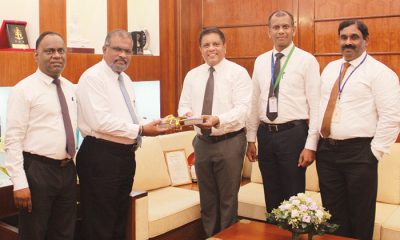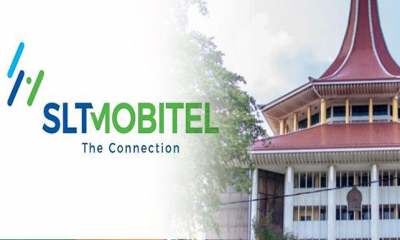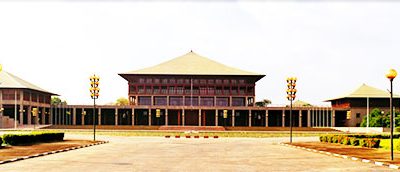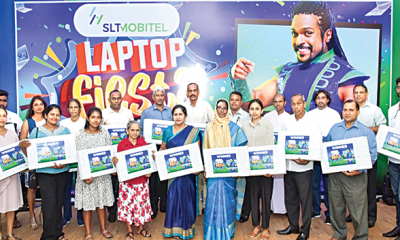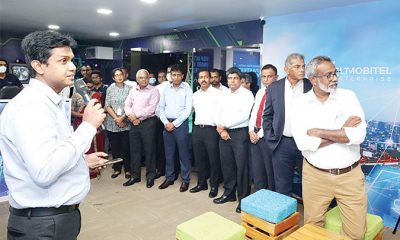Business
SLT statement on media coverage of Board changes

The Board of Directors (“Board”) of Sri Lanka Telecom PLC (“SLT”) refer to the recent media coverage of Boardroom changes at SLT.
This note is to provide factual information and clarity on the corporate identity of SLT, the role, responsibilities, authority and accountability of management and the Board (including the Chairman of the Board), and in particular the separation of powers between the Board and Management. All of the information in this note is already available in public sources.
SLT was incorporated under the then Companies Act No. 17 of 1982 (now superseded by the Companies Act No.7 of 2007). SLT is listed and quoted on the Colombo Stock Exchange (“CSE”) and is governed via the tenets of SLT’s Articles of Association (“Articles of Association”). The Government of Sri Lanka and Global Telecommunications Holdings (“GTH”) have a 49.5% and 44.98% equity interest in SLT. SLT has about 13700 other shareholders. As disclosed in the Annual Report, GTH is wholly owned by Usaha Tegas Sdn Bhd, which is incorporated in Malaysia. SLT is therefore not a state-owned corporation nor a government organization as opposed to government corporations established under separate enactments.
As a listed company, SLT complies with the CSE Continuing Obligations and the Code of Best Practice on Corporate Governance (“CG Code”). A copy of the Articles of Association is available for review at its registered office and the websites of SLT and CSE.
The Board plays a stewardship role in accordance with the CG Code which provides details on the role, responsibilities and authority of the Board and Management.
The Board, including the Chairman, is non-executive. This means that no director, including the Chairman of the Board, has the authority to make individual decisions or give individual instructions to members of management or staff. Board decisions and instructions are made and conveyed by formal, minutes and collective Board decisions.
The position of the Chairman at SLT is not to be confused with that of Executive Chairman in other public companies or State-Owned Corporations. The Chairman of the SLT Board has the primary role to chair board meetings and facilitate and ensure the workings of the Board. The Chairman is appointed by the Board in accordance with the Articles of Association.
All Directors, including the Chairman are non-Executive and are not employees of SLT. Their role is not full time. They are therefore not entitled to a salary nor benefits that accrue to employees. All Directors in SLT, including the Chairman, do receive fees for the discharge of their fiduciary duties.
SLT is led by a Chief Executive Officer (“CEO”) who is appointed by the Board. It is the CEO and the management team that operate the business and make the executive decisions within the powers provided to them by the Articles of Association. The CEO is an employee and is paid a salary.
The separation of powers, that the Board undertakes the oversight role and the management the executive role, ensures clear delineation of roles, responsibilities, authority and most importantly, accountability.
Compliance with related party transactions and its related disclosures in accordance with Sri Lanka Financial Reporting Standards 24 are monitored by the Related Party Transactions (“RPT”) Committee of the Board. The Board wishes to confirm that the present Chairman has not only disclosed his related party interests but that he has in fact made disclosures over and above regulatory requirements. The Board has robust controls in place to ensure that if a director does not disclose related party interests or interferes in areas where there is conflict, the Board will take the necessary action in accordance with the law and regulations.
The Board does hope that this statement provides clarity for the informed stakeholder. We humbly request that aggrieved and interested parties that have concerns regarding the governance of SLT address the appropriate forum of the regulatory authorities or the courts of law. The Board will not want to enter into the bowels of public debate and correct each and every uninformed, misguided, erroneous or unwarranted statement.
Business
Embedding human rights, equity and integrity into business leadership
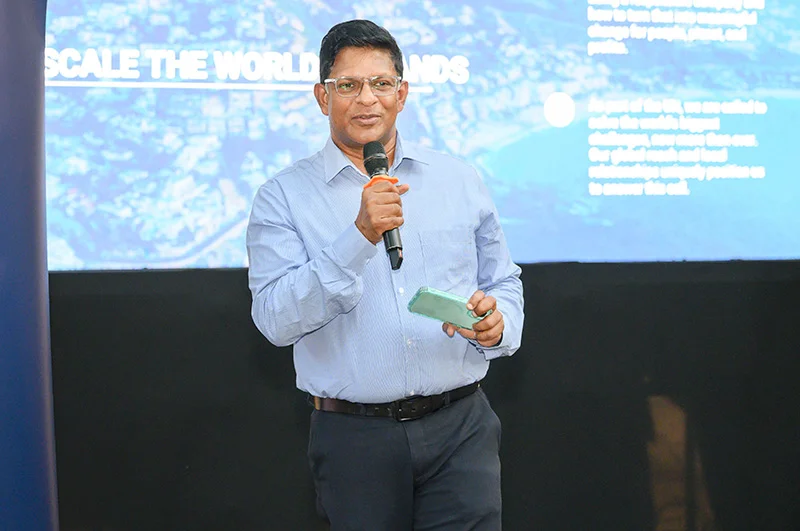
At its 2026 Social Sustainability Programme Kick-Off, the UN Global Compact Network Sri Lanka convened business leaders to advance the translation of global ambition into practical corporate action on inclusion, integrity and human rights.
On 24 February 2026, the UN Global Compact Network Sri Lanka (Network Sri Lanka) convened business leaders at Barefoot Garden Café for its 2026 Social Sustainability Programme Kick-Off, delivered in collaboration with Good Life X.
The gathering did more than introduce a calendar of events. It positioned Sri Lanka’s corporate community within the broader direction of the UN Global Compact’s 2026–2030 global strategy — a strategy anchored in three imperatives: equipping companies to act, catalyzing collective action, and advancing the business case for responsible leadership.
At its core, the 2026 Social Sustainability agenda is designed to move companies from commitment to capability.
Within the Diversity & Inclusion Working Group, this means building practical pathways toward equal pay for equal work and strengthening male allyship as a governance issue rather than a cultural afterthought. It means examining sexual and reproductive health, disability inclusion, and mental health not as employee benefits, but as structural determinants of productivity and retention. It means sharpening strategic communications so inclusion is embedded in brand integrity. It also means applying science-based behavioural change approaches to shift organizational culture in measurable ways.
Across the Business & Human Rights Working Group, equipping companies takes the form of deepened engagement on decent work and living wage implementation, strengthening human rights due diligence processes, and addressing emerging risk areas such as AI and digital rights. It extends to reinforcing business integrity and anti-corruption frameworks, understanding the social dimensions of a just transition, and recognizing the link between child rights, nutrition, and workforce productivity.
Business
Union Bank to raise LKR 3 Bn via Basel III Compliant Debenture Issue
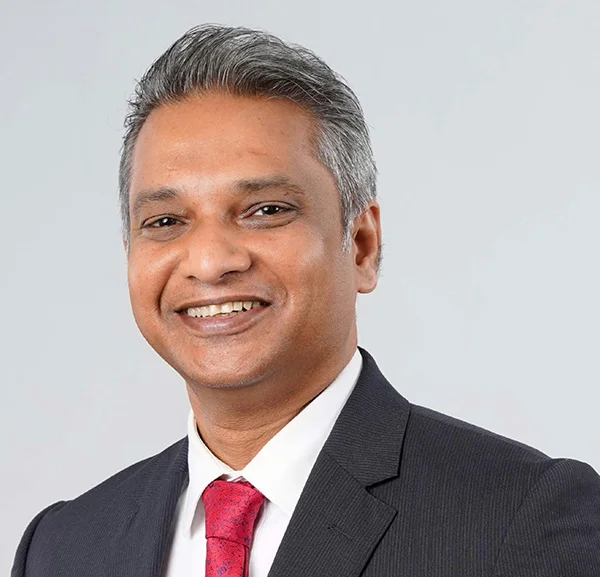
Union Bank of Colombo PLC announced its proposed Debenture Issue 2026, a strategic move aimed at raising up to LKR 3 billion. This issue is designed to bolster the Bank’s Tier II capital base and provide a robust financial foundation for its upcoming growth initiatives.
The offering consists of Basel III compliant, listed, rated, unsecured, subordinated, redeemable high-yield debentures with Non-Viability Conversion. The instrument has been assigned a rating of BB (lka) by Fitch Ratings (Lanka) Ltd, reflecting the bank’s creditworthiness and the structured nature of the subordinated debt.
Investors can choose from three distinct interest structures starting from a high-yield 13% fixed rate per annum (Type A). This option is paid annually, while Type B offers a 12.5% fixed rate paid semi-annually (12.89% AER). For those seeking market-linked returns, Type C provides a floating rate of the 182-days Treasury Bill rate plus a 400-basis point margin, also paid semi-annually.
The debentures are priced at LKR 100 per unit with a 5-year tenure (2026–2031). The initial issue size is set at 20,000,000 debentures with an option to raise 10,000,000 at the discretion of the Bank and is scheduled to open on 10 March 2026.
Shanka Abeywardene, Chief Financial Officer of Union Bank stated “This debenture issue marks a significant step in the Bank’s journey towards enhanced financial stability. By strengthening its capital adequacy, Union Bank is well-positioned to navigate evolving market conditions while fuelling its long-term strategic objectives for sustainable growth”
Business
Sanjay Kulatunga appointed to WindForce Board
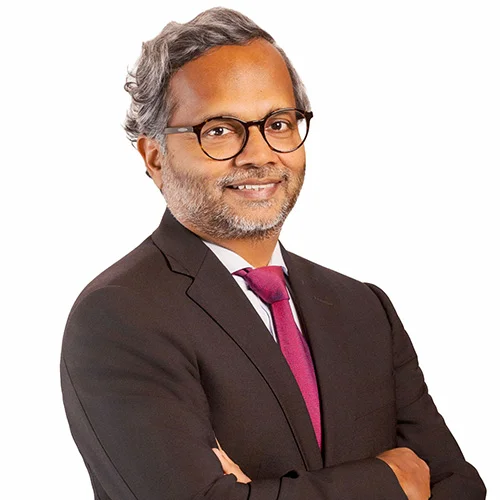
WindForce PLC announced the appointment of Sanjay Kulatunga as an Independent, Non-Executive Director to its Board with effect from 03rd March 2026, following the resignation of Dilshan Hettiaratchi. The appointment further strengthens the Company’s governance framework, strategic oversight, and long-term decision-making capabilities.
Kulatunga brings an established track record as a founder, entrepreneur, and senior executive across financial services and export-oriented industries. He is the Chief Executive Officer and Co-Founder of LYNEAR Wealth Management, a boutique investment firm established in 2013, which has since grown to become one of Sri Lanka’s largest private wealth management institutions, serving high-net-worth individuals as well as local and international institutional clients.
Prior to founding LYNEAR, Kulatunga played a pivotal role in the establishment of Amba Research, an investment research offshoring firm rooted in Sri Lanka and now operating as part of Acuity Analytics.
Over the years, he has contributed extensively to several key national institutions. His previous appointments include serving on the Financial Sector Stability Consultative Committee of the Central Bank of Sri Lanka, as well as the Board of Investment of Sri Lanka and the Securities and Exchange Commission of Sri Lanka.
-

 Features3 days ago
Features3 days agoBrilliant Navy officer no more
-

 Opinion6 days ago
Opinion6 days agoJamming and re-setting the world: What is the role of Donald Trump?
-

 Features6 days ago
Features6 days agoAn innocent bystander or a passive onlooker?
-

 Opinion3 days ago
Opinion3 days agoSri Lanka – world’s worst facilities for cricket fans
-

 Business6 days ago
Business6 days agoAn efficacious strategy to boost exports of Sri Lanka in medium term
-

 Business21 hours ago
Business21 hours agoCabinet nod for the removal of Cess tax imposed on imported good
-

 Features4 days ago
Features4 days agoOverseas visits to drum up foreign assistance for Sri Lanka
-

 Features3 days ago
Features3 days agoA life in colour and song: Rajika Gamage’s new bird guide captures Sri Lanka’s avian soul


